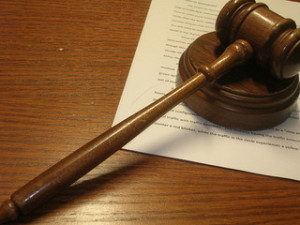Last year, our health care fraud whistleblowers’ law firm reported on an important issue in the False Claims Act arena: implied certification. The implied certification theory has the potential to be a powerful tool in the fight against fraud and, when we last discussed the topic, the Fourth Circuit Court of Appeals had ruled in favor of the theory. However, there has been disagreement on the issue among the federal appellate courts and the issue is headed to the Supreme Court. We continue to believe in the implied certification theory and we are closely following the issue as it makes its way to the highest court in the land.
whistleblowers’ law firm reported on an important issue in the False Claims Act arena: implied certification. The implied certification theory has the potential to be a powerful tool in the fight against fraud and, when we last discussed the topic, the Fourth Circuit Court of Appeals had ruled in favor of the theory. However, there has been disagreement on the issue among the federal appellate courts and the issue is headed to the Supreme Court. We continue to believe in the implied certification theory and we are closely following the issue as it makes its way to the highest court in the land.
The Escobar Case
As Modern Healthcare recently reported, the implied certification theory is heading to the Supreme Court via the case of Universal Health Services v. United States ex rel Escobar. The case involves a claim filed by the parents of a teenager who died while under the care of a mental health clinic. The plaintiffs allege that the clinic’s staff was not properly supervised and that the clinic lacked required board-certified or board-eligible supervisory personnel. As the First Circuit wrote, “The crux of their complaint is that [Defendants’] alleged noncompliance with sundry supervision and licensure requirements rendered its reimbursement claims submitted to the state Medicaid agency actionably false under both the federal and Massachusetts False Claims Acts.”
The Implied Certification Theory
The Escobar plaintiffs allege the defendants submitted false claims to a government program by virtue of their failure to follow certain regulations. According to the plaintiffs, this amounts to a violation of the False Claims Act (“FCA”) even if the government did not explicitly condition payment on adherence to the regulation and even if the defendant did not specifically claim compliance when requesting payment. Essentially, the plaintiffs suggest that asking for payment while being in violation of another regulation amounts to a false claim under the FCA.
This theory, known in legal circles as “implied certification,” has been upheld by some appellate courts and rejected by others, leading to the Supreme Court agreeing to hear the case.[i] While it is always possible the Court will choose to focus on a different issue (sometimes the Court has avoided a major ruling by focusing on a procedural matter), we fully expect the ruling to resolve this dispute. As Modern Healthcare suggests, the decision could impact a range of industries but, since two-thirds of federal whistleblower cases in 2015 involved healthcare industries, it is likely to impact healthcare in particular. The Supreme Court’s decision on the viability of the theory under the federal FCA may lead to a significant increase – or decrease – in the number of FCA claims filed annually.
The Arguments For and Against Implied Certification
The Supreme Court is currently taking briefs from both parties and interested nonparties (aka amicus curiae), starting with briefs from the defendants and their supporters. Modern Healthcare reports that over a dozen healthcare organizations and interest groups have filed amicus briefs arguing against the implied certification  theory. The American Medical Association’s brief suggests that imperfect compliance is not equal to fraud, especially given the complex regulatory environment and the size of potential liability under the FCA. Another brief filed by a group of healthcare associations suggests the theory would encourage meritless suits by whistleblowers who are simply looking for a payout.
theory. The American Medical Association’s brief suggests that imperfect compliance is not equal to fraud, especially given the complex regulatory environment and the size of potential liability under the FCA. Another brief filed by a group of healthcare associations suggests the theory would encourage meritless suits by whistleblowers who are simply looking for a payout.
Briefs have not yet been filed by (or in support of) the plaintiffs, but Modern Healthcare spoke with a representative from a group that supports whistleblowers. The advocate suggests that the implied certification theory is important because it can hold organizations accountable “for doing the right thing—even if that right thing isn’t explicitly stated in a contract with the government.” Focusing on the specific case at hand, the interviewee inquired: “Do we have to demand to see the credentials and then call the college of every dentist, doctor and mechanic we go to or is there a reasonable expectation that the business itself is … doing due diligence?”
A Whistleblowers’ Law Firm Supporting Implied Certification and Other FCA Claims
In our experience, whistleblowers are motivated by the truth, not by money. Yes, whistleblowers are entitled to a substantial reward if their information leads to a recovery of government money. However, the whistleblowers we work with tell us they are taking action because they believe it is right and that is why we join their fight. While well-deserved, the reward is not the primary motivation behind the whistleblowers actions.
We believe that when an entity requests payment from the government it is implicitly claiming that they have complied with all relevant rules and regulations. After all, why have regulations if compliance isn’t a requirement for payment? A claim is only actionable under the FCA if it is made knowingly or with reckless disregard for truth. It isn’t about punishing an organization for an innocent mistake. Instead, in simple terms, the FCA is about holding organizations liable when they lie to the government in order to receive undue (or unduly large) payments.
We will continue to monitor the Escobar case. We will also continue to work with honest individuals who step forward on behalf of our government and all her people to hold individuals/organizations accountable when they file false claims for government funds. If you believe you’ve witnessed fraud on the government, including but not limited to healthcare fraud and including fraud based on implied certification, contact our False Claims Act lawyer to learn how you can make a difference and join the fight against fraud.
See Related Blog Posts:
Decision Expands Reach of the False Claims Act and Helps Fight Government Fraud
Fiscal Year 2015 and the False Claims Act: Reviewing Another Successful Year
[i] Although not directly relevant to the interpretation of the federal FCA, several states including our native California have found the implied certification theory applicable under their state versions of the FCA. We will discuss implied certification under state law, including under California’s False Claims Act, in a future blog post.
(Gavel image by Brian Turner; Courthouse image by Robert Linder)
 Healthcare Fraud Lawyer Blog
Healthcare Fraud Lawyer Blog


